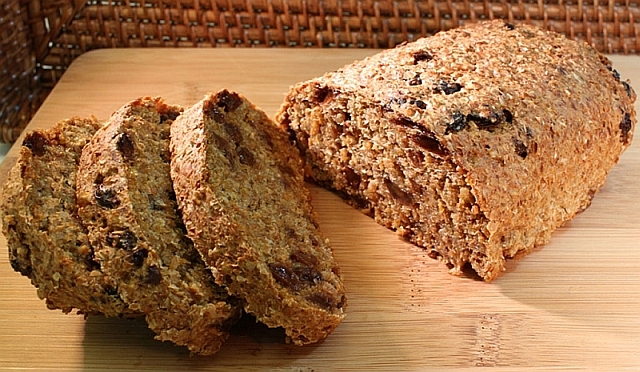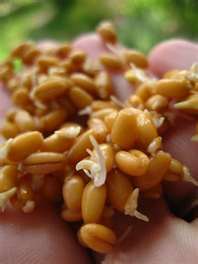Bread, the Staff of Life
Who doesn’t love the smell of bread baking in the oven, or the rich taste of whole wheat bread? Wholesome and delicious and full of nutrients and fiber.
of whole wheat bread? Wholesome and delicious and full of nutrients and fiber.
All things being equal . . . but it’s not
In order to mass produce our bread, modern technology has changed much of it.
Wheat is grown in nutrient-depleted soils that require synthetic fertilizers. Chemical pesticides and herbicides further damage the grain. After harvesting and grinding using high heat, huge bread factories combine wheat with dough conditioners, stabilizers, preservatives and a long list of ingredients that are added to most bread.
It makes sense to eat organic bread with few added ingredients
Whole grain bread, whether organic or not, is often hard to digest, due to the nature of the grain itself.
The mineral phosphorus in grains and seeds comes in the form of phytic acid.
Unfortunately, this form of phosphorus is not readily available to your body. To make matters worse, phytic acid is naturally converted by your body into phytates. Phytates bind with other minerals, such as iron, zinc, calcium and magnesium, making these vital minerals also unavailable for your body to use. The result may be mineral depletion from an innocent-looking grain called wheat.
Good news!
Nature has provided the answer by also giving grains, including wheat, an enzyme called phytase that neutralizes phytic acid. This makes phosphorus and the other minerals available for your body to use. But it doesn’t happen on its own. This enzyme needs to be activated by soaking or sprouting the grain.
Your body does produce some phytase, but not enough to deactivate phytic acid. Friendly bacteria, such as those in cultured foods, can increase the digestive microflora that can produce phytase.
When grains are sprouted, this:
- Activates the enzymes that help to break down the grains and make digestion easier.
- Helps to break down gluten, a hard-to-digest protein in wheat.
- Makes the grains low glycemic which helps to reduce blood sugar spikes.
- Increases nutrients. Research into the nutrient value of sprouted whole wheat found it to have: 28% more thiamine (B1), 315% more riboflavin (B2), 66% more niacin (B3), 65% more pantothenic acid (B5), 111% more biotin, 278% more folic acid, and 300% more Vitamin C than non-sprouted whole wheat.
Ready-made organic sprouted grain bread
Preparing the grain correctly, and making good, nutritious sprouted grain bread takes a great deal of time and effort.
Don’t have time to make your own sprouted grain bread? We can now offer you nine great flavors of organic sprouted grain bread, delivered frozen to your door.
Disclaimer: These statements have not been evaluated by the Food and Drug Administration. These products are not intended to diagnose, treat, cure, or prevent any disease.
Information provided in this article is not designed to and does not provide medical advice, professional diagnosis, opinion, treatment, or services to you or to any other individual. This is general information for educational purposes only. The information provided is not a substitute for medical or professional care, and you should not use the information in place of a visit, call, consultation, or the advice of your physician or other healthcare provider. Wise Choice Marketing Inc is not liable or responsible for any advice, course of treatment, diagnosis, or any other information, services, or product you obtain through Wise Choice Marketing Inc.


 Loading... Please wait...
Loading... Please wait...













